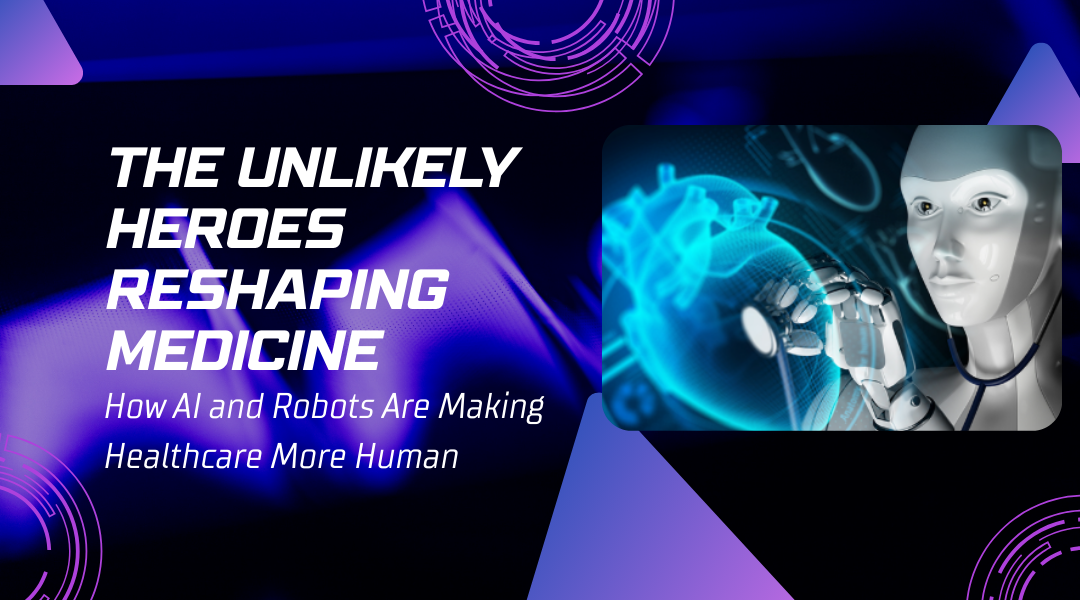It sounds like something out of a sci-fi novel – robots assisting in surgery, algorithms predicting health crises before they happen. But walk into any modern hospital today, and you’ll find these aren’t futuristic fantasies anymore. They’re tools that are quietly revolutionizing patient care in surprisingly personal ways.
The Brains Behind the Operation
AI in healthcare isn’t about cold, calculating machines. It’s about:
- That “Aha” Moment in Radiology – Like at Mass General, where an AI system spotted a tumor on a scan that three radiologists had missed – not because they weren’t skilled, but because the AI could compare it against millions of similar cases in seconds.
- The Digital Guardian Angel – Take the VA hospitals using AI that notices when a veteran’s medication patterns suggest they might be struggling with depression. It doesn’t replace human judgment – it gives clinicians an early heads-up to reach out.
- Your 3 AM Health Partner – Those chatbot symptom checkers have evolved. Now they can detect subtle changes in how you describe your headache that might indicate something serious, telling you “You should go to the ER now” versus “Try some tea and rest.”
The Helping Hands Making a Difference
Robots in medicine aren’t replacing humans – they’re taking over the tasks that exhaust healthcare workers:
- The Steadiest Hands in the OR – At Johns Hopkins, robotic assistants allow surgeons to perform delicate spine operations through incisions smaller than a dime. The robot doesn’t operate autonomously – it’s more like a super-precise extension of the surgeon’s own hands.
- The Tireless Caregiver – In Japanese nursing homes, robots don’t replace staff – they handle repetitive tasks like lifting patients, freeing up human caregivers to spend more quality time with residents.
- The Comeback Coach – Stroke patients at the Shirley Ryan AbilityLab in Chicago are using robotic exoskeletons that adapt to their progress, providing just enough support to let them relearn walking without frustration.
Where the Magic Really Happens
The most exciting developments come when these technologies work together:
- Imagine an AI that studies a cancer patient’s latest scans overnight, then guides a robotic system to precisely target radiation therapy by morning – adjusting millimeter by millimeter for optimal effect.
- Or consider “Nurse Amelia” at HCA Healthcare – an AI assistant that handles routine paperwork and alerts, giving nurses back an extra hour each shift for actual patient care.
The Human Questions We Can’t Ignore
With all this progress, we’re wrestling with real dilemmas:
- The Trust Factor – Will patients accept a diagnosis from an algorithm? Studies show they will – if it’s presented as a “second opinion” tool rather than a replacement for doctor’s judgment.
- The Cost Barrier – These technologies shouldn’t only benefit wealthy hospitals. Groups like Partners In Health are working to adapt them for rural clinics worldwide.
- The Touch Paradox – As we automate more tasks, we’re rediscovering how much healing comes from human connection. The best systems are designed to protect that.
What This All Means for You
This isn’t about technology for technology’s sake. It’s about:
- Your mother’s knee replacement being performed with robotic precision that minimizes scarring and recovery time
- Your child’s pediatrician having an AI assistant that remembers every allergy and vaccine without digging through files
- Emergency rooms where algorithms help sort who needs immediate care, so no one falls through the cracks
The future of healthcare isn’t cold and mechanical – it’s warmer, more attentive, and more personalized than ever before. Because when machines handle the routine tasks, doctors and nurses finally have the time to be fully present for what matters most – their patients.
The revolution won’t come with fanfare. You’ll know it’s working when your hospital stay feels less like an assembly line and more like care designed specifically for you – with some very smart helpers working behind the scenes to make it happen.
